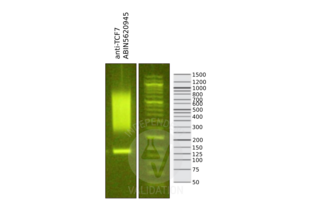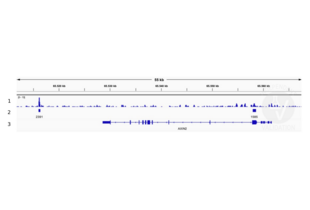TCF7 抗体
Recommended next Filters:
63 results
 1 reference
1 reference
 1 validation
1 validation
Latest Publications for our TCF7 抗体
: "38" in: , Vol. 1363, Issue Nucleic acids research, pp. 28-39, (1991): "A new cut&run low volume-urea (LoV-U) protocol optimized for transcriptional co-factors uncovers Wnt/b-catenin tissue-specific genomic targets." in: Development (Cambridge, England), (2022) (PubMed).
: "Wnt activates the Tak1/Nemo-like kinase pathway." in: The Journal of biological chemistry, Vol. 279, Issue 17, pp. 17232-40, (2004) (PubMed).
: "A polymorphism in the TCF7 gene, C883A, is associated with type 1 diabetes." in: Diabetes, Vol. 52, Issue 6, pp. 1579-82, (2003) (PubMed).
: "Initiation and limitation of Ly-49A NK cell receptor acquisition by T cell factor-1." in: Journal of immunology (Baltimore, Md. : 1950), Vol. 171, Issue 2, pp. 769-75, (2003) (PubMed).
Aliases for TCF7 抗体
transcription factor 7 (TCF7) 抗体transcription factor 7, T cell specific (Tcf7) 抗体
transcription factor 7 (Tcf7) 抗体
transcription factor 7 (tcf7) 抗体
transcription factor 7 S homeolog (tcf7.S) 抗体
AI465550 抗体
TCF-1 抗体
tcf-1 抗体
Tcf1 抗体
tcf1 抗体
tcf7 抗体
Xtcf-1 抗体
Xtcf1 抗体






